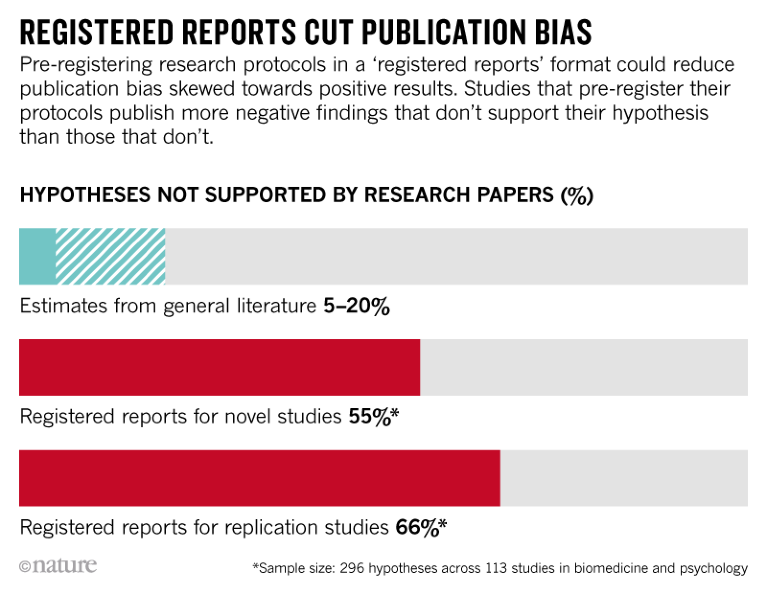EVENTS
Brazil’s new president worries scientists Right-wing politician Jair Bolsonaro won Brazil’s presidential election on 28 October, leaving many researchers stunned, and worried about the future of their country. He captured around 55% of the vote in a run-off election against Fernando Haddad, former mayor of São Paulo. None of the 13 presidential candidates garnered a majority during the first round of voting on 7 October, prompting the run-off between the top two candidates. Bolsonaro has promised to crack down on violent crime and government corruption, roll back environmental regulations and promote economic development. Although he has backed down from an earlier promise to pull Brazil out of the 2015 Paris climate accord, Bolsonaro has said that he will merge the environment and agriculture ministries as part of a broader effort to loosen regulations on the agricultural industry.

Jair Bolsonaro waves to supporters during a September rally.Credit: Andre Coelho/Bloomberg/Getty
Conference furore More than 1,400 people have signed a petition calling for a machine-learning conference to change its controversial name. Anima Anandkumar at the California Institute of Technology in Pasadena set up the petition after the board of the annual Neural Information Processing System conference, widely known as NIPS, said on 22 October that it would keep its name on the basis of a poll that the petition says was flawed. Some researchers say that the connotations of the conference acronym have been used by some attendees to make unwelcome sexual jokes, so the board issued a poll asking people who had attended the event over the past five years whether they supported a name change. Around one-third of the 2,270 respondents supported the change, including 44% of the 300 or so women.
Hubble-law change Members of a major international organization of astronomers have voted to change the name of the Hubble law. The law states that the velocity at which a galaxy seems to be receding is proportional to its distance from Earth, and it provided evidence for the expansion of the Universe. The International Astronomical Union recommends that the law should now be known as the Hubble–Lemaître law, to pay tribute to the Belgian priest and astronomer Georges Lemaître, who derived the speed–distance relationship two years earlier than did US astronomer Edwin Hubble. Of the 4,060 votes (out of some 11,070 eligible members) 78% were in favour of the change.
Research chief Structural biologist Shekhar Mande is the new director-general of India’s Council of Scientific and Industrial Research (CSIR), one of the country’s largest and oldest research and development organizations. Mande says he will use his appointment to help address some of the country’s most intractable problems, such as malnutrition, disease epidemics and access to clean drinking water. But Mande arrives at a time when the CSIR faces major challenges of its own. The organization’s 38 institutes are still reeling from a government order, three years ago, to increase their own funding. Subsequent hikes to employers’ pension-scheme contributions then put a dent in the council’s already stretched budget. “My highest priority is to take stock of CSIR’s funding situation,” Mande says. Scientists also hope he will tackle the agency’s entrenched bureaucracy.
Climate lawsuit New York state attorney general Barbara Underwood filed a lawsuit against oil and gas giant ExxonMobil on 24 October, alleging that the company misled its investors about the financial risks that global warming posed to its business. The suit alleges that the company told investors that it was taking into consideration the impact that potential climate-change regulations could have on future demand for fossil fuels. But ExxonMobil either used low estimates of those costs or failed to consider them at all in business activities such as evaluating its oil and gas reserves and assessing demand for its products in the transportation sector. The lawsuit also alleges that the company’s senior management was aware of these activities. ExxonMobil did not respond to Nature’s requests for comment.
FUNDING
UK budget released The UK government’s budget, released on 29 October, contained few surprises for science. Chancellor of the Exchequer Phillip Hammond announced £1.6 billion (US$2 billion) of “new investments” in science and innovation. But the advocacy group Campaign for Science and Engineering says this mostly represents allocation of funds that the government had already committed. The money includes £235 million to develop quantum technologies and £150 million for international research fellowships. The government has previously promised to increase spending on research and development to 2.4% of gross domestic product by 2027. But in a statement, Venki Ramakrishnan, president of the Royal Society, said that the 2018 budget “does not provide any more clarity on how it is going to get there”.
POLICY
Hungary departure An international university in Budapest that has been at the centre of a struggle between Hungarian liberals and the country’s right-wing government has decided to transfer its next batch of master’s and doctoral students to Vienna (pictured).The decision to move new students to Austria ends an 18-month struggle to keep the Central European University (CEU) fully in Hungary after the government passed a law in April 2017 requiring international universities to operate as higher-education institutes in their country of origin, as well as in Hungary. Founded by philanthropist billionaire George Soros, the CEU has been based in Budapest since 1993, even though it is legally registered in New York state. Michael Ignatieff, rector of the CEU, announced the move in a 25 October statement, in which he referred to various laws introduced by the Hungarian government earlier this year that also impinged on CEU activities — and which Ignatieff described as a crackdown on academic freedom.

Goodbye Budapest, hello Vienna.Credit: Gerhard Trumler/Imagno/Getty
Research rejected Australian universities and researchers have condemned the actions of a government minister who vetoed projects that had been selected for funding by peer-review panels. On 25 October, it emerged that in June 2018 and November 2017, Simon Birmingham, the then-minister for education, used his ministerial powers to stop funding for 11 humanities research projects, worth a combined AUS$4.2 million (US$3 million). Birmingham’s intervention went against the recommendations of independent peer-review panels that had assessed the projects as high-quality and worthy of funding from the Australian Research Council, a major funder of science and humanities research. Although the education minister has the power to reject recommended projects, the right is rarely exercised. Researchers are worried that the minister’s actions undermine the country’s competitive research-funding system.
CLIMATE CHANGE
Canada carbon tax Canadian Prime Minister Justin Trudeau unveiled the details of a federal carbon tax programme on 23 October. It will apply to provinces that don’t already have carbon tax plans that meet federal requirements, such as Ontario, Manitoba and New Brunswick. The programme, announced in 2016, is aimed at helping Canada to reduce its greenhouse-gas emissions by 30% below 2005 levels by 2030. The federal tax for consumers is due to start at Can$20 (US$15) per tonne of carbon dioxide in 2019, rising to $50 per tonne in 2022. It will be applied as a fuel surcharge, although 90% of the proceeds will be returned to consumers as a rebate. Major industrial facilities will be taxed through a separate programme, the final details of which the government plans to announce early next year.
TREND WATCH
Studies that fail to find a positive result are often left unpublished, which leads to a publication bias that compromises the credibility of scientific literature.
An analysis now suggests that registering and peer-reviewing study protocols before research is conducted could help to correct the bias towards positive findings. Researchers from Cardiff University, UK, report what they say is the first analysis of whether such a practice is effective. Chris Allen and David Mehler analysed the outcomes of 113 registered reports in the biomedical and psychological sciences. They identified 296 discrete hypotheses across those studies, and found that, overall, 61% of them were not supported by the final results in the published papers. By contrast, just 5–20% of hypotheses in the general scientific literature lead to null results, they estimate (C. Allen and D. M. A. Mehler Preprint at PsyArXiv https://psyarxiv.com/3czyt; 2018). For replication studies, the percentage of null results was slightly higher, at 66%, whereas this figure was 55% for original research. So far, only 130 registered reports have ever published final results, and some 140 journals use the format.

Source: C. Allen & D. M. A. Mehler Preprint at PsyArXiv https://psyarxiv.com/3czyt (2018)






